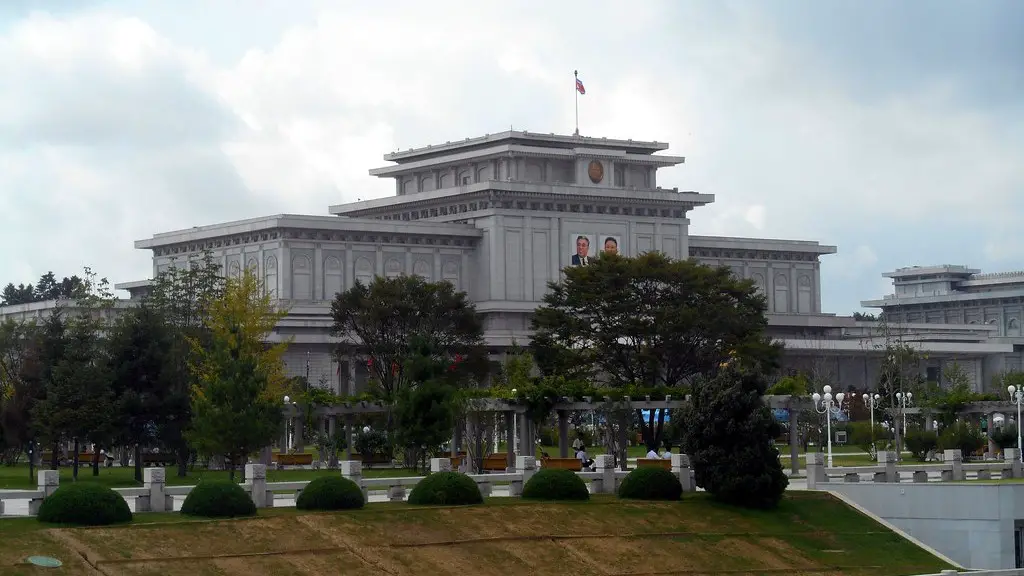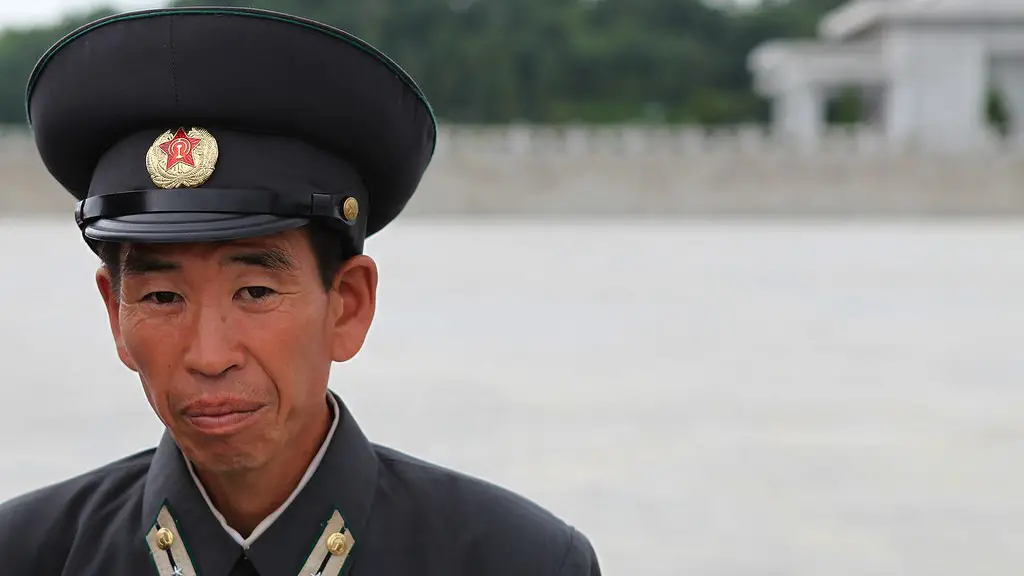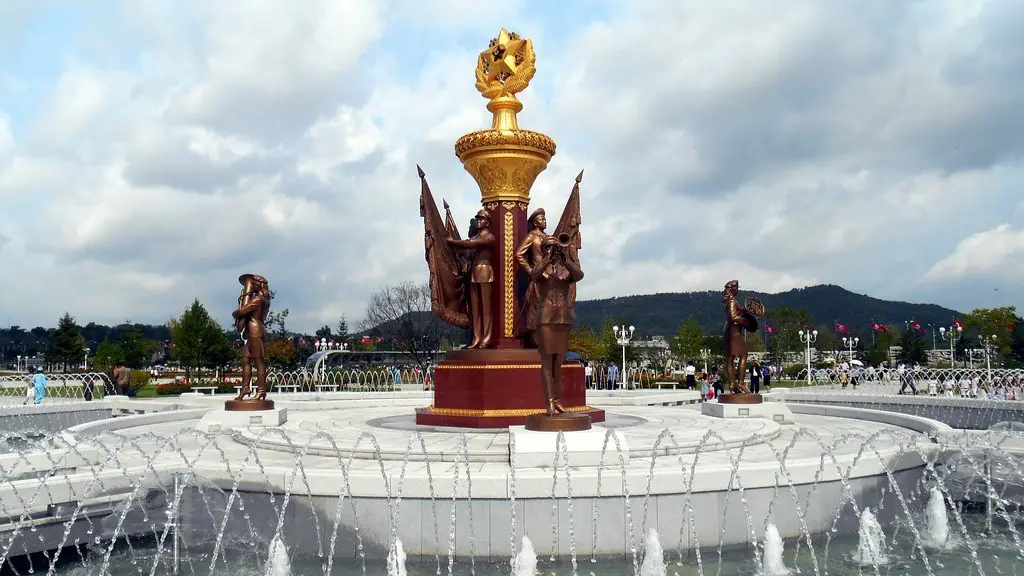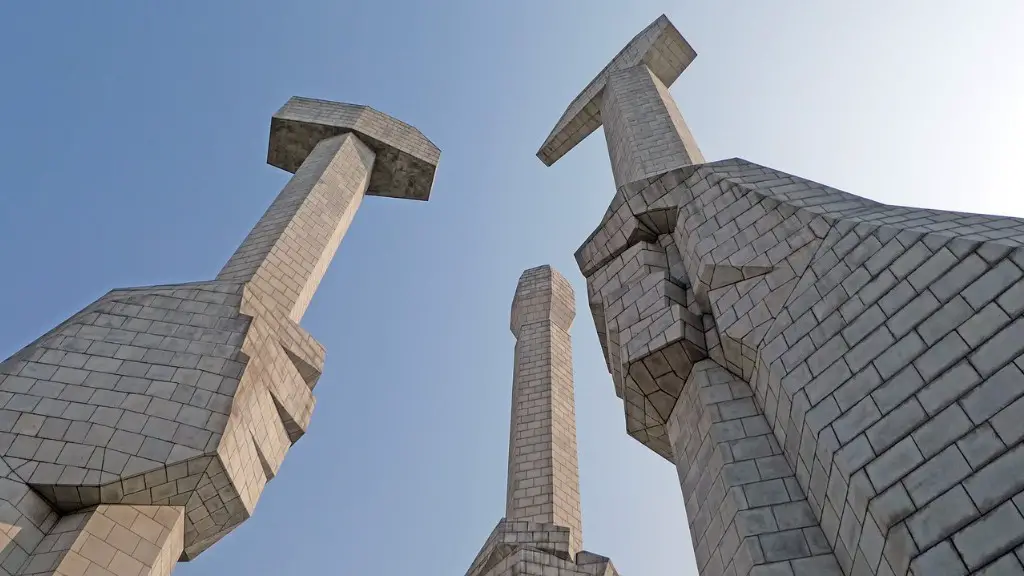For many years, North Korea was controversial due to its secretive nature and the fact that it was developing nuclear weapons. The country’s nuclear program has been a source of tension and concern for world leaders and an important factor in global security.
North Korea first announced that it had a nuclear weapons program in 2003. Since then, the country has conducted numerous nuclear tests, sanctioned by the United Nations Security Council, in an attempt to demonstrate its commitment to acquiring such weapons. It is unclear how much of this activity was designed to create a missile deterrant or simply to demonstrate its capabilities in the international arena. However, the tests have outraged the international community, as they represent a significant violation of the Nuclear Non-Proliferation Treaty.
The main motivation behind North Korea’s pursuit of nuclear weapons is its desire for self-preservation and the ability to control its own destiny. By having nuclear weapons, the country is better able to protect itself against external threats and hopes that it will gain the respect and recognition of other nuclear powers.
Experts believe that North Korea’s possession of nuclear weapons is also part of its long-term strategy to gain negotiating power in the region and to use its capabilities as a bargaining chip in negotiations with the United States and other powers. The possession of nuclear weapons gives North Korea more leverage in seeking economic benefits, a greater say in regional affairs, and a greater role in international diplomacy.
Although the existence of North Korea’s nuclear arsenal has caused concern for the international community, the country’s ultimate goal is to gain security and prosperity for its people. Despite the United Nations’ efforts to limit the country’s nuclear capabilities, North Korea has remained determined to develop nuclear technology as a means of safeguarding its sovereignty and protecting itself from external forces.
While North Korea has long been criticized for its weapons development, the country has always maintained that its nuclear program is peaceful in nature and it has no intention of using nuclear weapons for anything other than self-defense. Moreover, North Korea has made it clear that it is open to negotiations and has expressed a willingness to discuss the issue with the international community. In this respect, the country has demonstrated its commitment to reducing tensions and finding a peaceful solution to the problem.
Despite the tensions, North Korea has succeeded in developing a powerful arsenal of nuclear weapons. It is still unclear how the country will use its capabilities and what the ultimate goal of its nuclear program is. Nevertheless, it is clear that North Korea’s nuclear weapons have played a major role in the country’s attempts to secure its autonomy and gain respect from the international community.
The Impact of the Nuclear Arsenal on North Korea
The development of a nuclear arsenal has had a significant impact on North Korea. As the only country that has openly declared its intentions to obtain such weapons, the country has been subject to a great deal of international scrutiny, sanctions, and criticism. Despite this, the importance of the country’s nuclear capabilities cannot be underestimated, as it has become an important part of the country’s strategic objectives.
The nuclear weapons program has allowed North Korea to bolster its deterrence capabilities, thus providing an deterrent to any possible aggressors. This has been especially effective against its neighbor, South Korea, and its main adversary, the United States. In addition, North Korea’s nuclear arsenal has allowed it to gain recognition as a nuclear power, thus providing the country with a seat at the table with other nuclear powers in the international arena. On a more practical level, there is evidence that the nuclear weapons program has helped to alleviate economic hardship and poverty, as the country has used the program as a means of stimulating economic growth.
The international community has also felt the impact of North Korea’s nuclear weapons. For example, the presence of such weapons has increased the risk of nuclear proliferation in the region, as other countries may be tempted to follow North Korea’s example and pursue their own nuclear capabilities. In addition, the presence of nuclear weapons has fuelled tensions between North Korea and its neighbours, which are unlikely to be resolved anytime soon.
Finally, the presence of nuclear weapons in North Korea has also raised the risk of a nuclear accident occurring, as the country lacks the technical and operational safeguards necessary for safe operation of such weapons. This has raised the risk of catastrophic consequences should a nuclear accident occur.
North Korea’s Strategy for Developing Nuclear Weapons
North Korea has developed a sophisticated strategic plan to acquire and maintain its nuclear weapons. As part of this, the country has adopted a policy of nuclear opacity, where it remains unclear as to the size and scope of the country’s nuclear capabilities. This is done in order to maintain an element of uncertainty and ambiguity that grants the country a tactical advantage in international negotiations and other diplomatic exchanges.
The country also appears to be utilizing its nuclear weapons as a bargaining chip and a means of increasing its leverage in regional and international negotiations. As part of this strategy, North Korea has occasionally agreed to suspend or slow down its nuclear program in exchange for concessions and other diplomatic benefits, such as the potential for economic and security aid. The country has also used its nuclear program as a way of asserting itself against the United States and other regional powers.
The country also appears to have developed a strategy of nuclear brinkmanship, where it is willing to risk an escalating conflict in order to advance its strategic objectives. This has been evidenced in the country’s recent military provocations, such as the testing of intercontinental ballistic missiles and the detonation of a powerful nuclear device.
Finally, North Korea is also using its nuclear program as a means of externalizing the country’s internal problems. The perception that the country is a nuclear power has led to an increase in its global prestige, which has enabled it to deflect attention away from its troubled economy and poor human rights record.
The United States and North Korea’s Nuclear Program
The United States has been at the forefront of the effort to limit North Korea’s nuclear weapons capabilities. It has taken a hard stance on the issue, imposing severe economic sanctions on North Korea and developing a policy of containment. On the diplomatic front, the US has engaged in several negotiations with North Korea in an attempt to limit and eventually eliminate the country’s nuclear program.
The US has also worked with other countries, including China and Russia, to pressure North Korea to abandon its nuclear program. Through their efforts, the US has been able to limit the country’s nuclear capabilities, though the country remains a nuclear power. Despite the pushback from other countries, the US has remained firm in its stance that North Korea must abandon its nuclear program if it hopes to have a peaceful and prosperous future.
Despite the US’s efforts, the situation in North Korea remains tense, with the country still possessing nuclear weapons and pursuing a policy of nuclear opacity. This has made it difficult for the US to gauge the size and scope of the country’s capabilities, which allows North Korea to maintain an edge in diplomatic negotiations.
Furthermore, the US has been facing resistance from Russia and China, who have taken a more conciliatory approach to North Korea’s nuclear program. These countries have been critical of the US’s approach, arguing that sacrificing North Korea’s nuclear capabilities will not bring peace or stability to the region.
Effects of Nuclear Weapons on North East Asia
The nuclear weapons program of North Korea has had a significant impact on the security of North East Asia. The presence of nuclear weapons has significantly increased the risk of a conflict in the region, as the country’s actions could potentially lead to a nuclear confrontation. This has led to an increase in military tensions in the region, as well as an inhibition of economic and diplomatic exchanges.
The presence of nuclear weapons also has a psychological impact on the region, as the risk of using such weapons has been heightened. This has been exacerbated by the fact that the North Korean government has publicly demonstrated its willingness to use nuclear weapons if necessary, in order to maintain its security.
Furthermore, the North East Asian region has been affected by the economic sanctions imposed by the United States and other countries on North Korea. These sanctions have hindered economic development and impeded trade and investment in the region, as many countries have refrained from engaging in any economic exchanges with North Korea.
Finally, the nuclear weapons program has also had a detrimental effect on the environment of the region, as the testing of the country’s nuclear weapons has resulted in the release of radioactive materials into the atmosphere. This has caused a range of health problems in the region, prompting concerns from the international community.
Implications For Global Security
The nuclear arsenal of North Korea has had a significant impact on global security. The country’s possession of such weapons has created an international arms race, as other countries may be tempted to increase their own nuclear capabilities in order to maintain a strategic advantage. Furthermore, the presence of nuclear weapons in North Korea has galvanized the international community, as it has raised the risk of a conflict occurring due to North Korea’s provocative actions.
The emergence of North Korea as a nuclear power has also raised the risk of nuclear terrorism, as its nuclear capabilities could be acquired by a terrorist organization that is bent on creating mass destruction. This has been a major concern for intelligence agencies, who have been monitoring the country’s activities and attempting to prevent any potential transfers of these weapons.
The nuclear program of North Korea has also been a major challenge for the international community, as it is unclear how to contain and limit the country’s nuclear capabilities. The US and other countries have been attempting to put pressure on North Korea through economic sanctions and diplomatic pressure, though the effectiveness of these measures is debatable.
Finally, North Korea’s nuclear program has created a dilemma for the US, as the country is unable to take any decisive action that would either eliminate or contain the North Korean nuclear threat. As such, the US is caught in a difficult balancing act between preventing the spread of nuclear weapons and maintaining peace and stability in the region.





